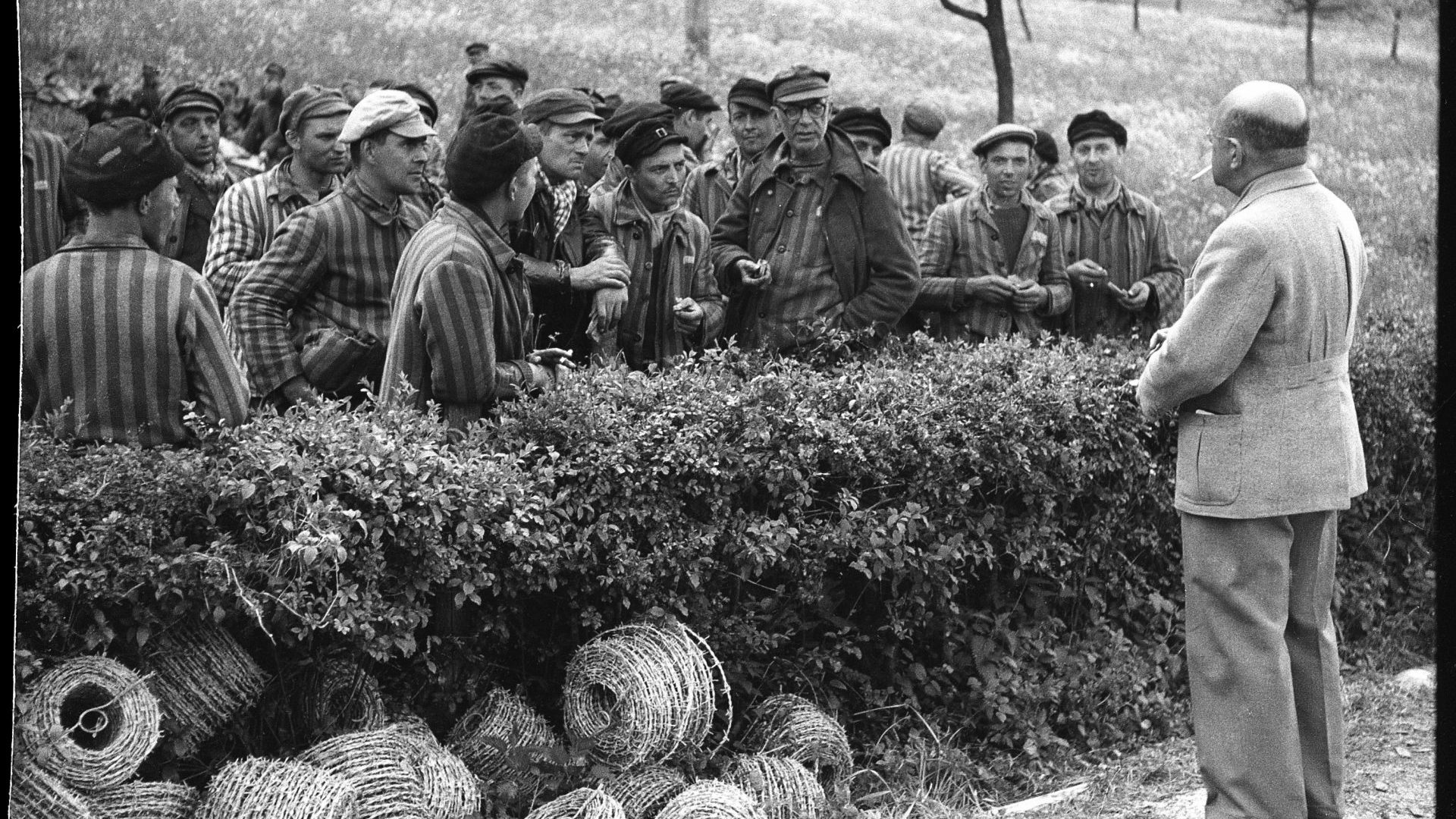There is a bitter irony in the fact that Nazi Germany only invaded Hungary almost as the war ended. But in 1944 the Jews of Hungary, including the large Jewish congregation of northern Transylvania where my family lived, were shipped to the death camps. Of the large family I had before the war, only a handful survived.
Two sisters on my father’s side lived. One endured Auschwitz as a 14-year-old girl, her parents murdered on arrival. The other sister hid in an attic in Budapest with the help of a Hungarian friend. When the war ended they returned to what was left of their home. When they reunited, they ran so swiftly towards each other that one broke her ankle and the other collapsed of exhaustion. They spent the first three weeks of their reunion side by side in a hospital bed.
In a way, they were the lucky ones. Of the surviving remnants of Europe’s Jewish population – a group named She’erit Ha-pleta – a quarter of a million people found themselves with nowhere to go. They had no home, no property, no identity papers – nothing, in most cases, but the tattooed blue number on their arm that would mark them for the rest of their lives. These Displaced Persons – these refugees – were placed into makeshift camps by the Allied Forces. Many of these were in Germany, and many were set in former concentration camps.
One of the largest and most notorious was the Landsberg DP Camp in Bavaria. It was set in a former Wehrmacht barracks, a short distance from the prison in which Adolf Hitler wrote Mein Kampf during his brief period of imprisonment there in 1924.
Conditions in the Landsberg were harsh. It was cramped, unsanitary, freezing in winter, with inadequate medical facilities and food, and no chance at employment. Riots broke out in 1946, as did impromptu attacks on “kapos”, those Jewish concentration camp inmates who had been used by the SS as overseers.
Outside the camp, the Jews were surrounded by the German population – the victims of genocide forced to live alongside their one-time murderers. In the immediate post-war period, everything and everyone became a source of currency. The black market flourished as people sold every possession they had. It was not unusual to see returning British soldiers marching up and down the East End with German-made watches all down their arms, offered for sale.
Cigarettes were so valuable that the Soviets exchanged them into gold – 60 cigarettes bought a gram of the precious metal, and a packet sold on the black market could be worth as much as $90. The American garrison in Berlin alone sent home the equivalent of £3,170,000 in a single month, a testament to the widespread black market syndicates that operated then.
For the refugees, there was nothing to do but hope that a border would open. Palestine, where many wished to emigrate, was controlled and blockaded by the British. Any ships caught attempting to land would be turned back, or sent to new camps in Cyprus. Britain, then as now, never did warmly welcome refugees.
A rare children’s transport to England of some 700 orphans was approved in 1945 – but even so, in 1947 there were still 2,000 or so children held by the British in the Cyprus camps. The survivors were so desperate for life that there was a wedding seven days a week and the cries of newborn babies filled the air.
It was into this world that my mother was born. Her parents met in the camp, having both survived Auschwitz, and when my mother was born they named her Chaya, which means “alive”. Little Chaya spent the first two years of her life in the camp, though we have no birth certificate for her, nor does she remember anything of those early years.
Similarly, she has no recollection of the journey she later took in a rickety, cramped ship to British-controlled Palestine. Those ships smuggled the Jewish refugees on a wing and a prayer. Many people drowned, including on the shipwreck of the SS Athena, renamed the Rafiah, off Syrna in 1946. Other ships were stopped by the British navy and their passengers were deported.
It was a world much like our own. As in the 1940s, today refugees from war are fleeing across Europe from Iraq, Syria, Ukraine, Eritrea and Libya to name just a few, seeking shelter in any country that would take them. The ships that carry many of them capsize and the refugees drown.
The navies that patrol the Mediterranean work to stop them from making land. The camps are back – the so-called “Calais Jungle” of 2015, built on a landfill site, being one well-known example. The UK once again patrols its waters to stop the boats, houses refugees in terrible conditions or attempts to send them elsewhere – then it was Cyprus, now it’s Rwanda. And now, as then, children simply go missing. Those children, vulnerable, lost, are my mother.
There is no happy ending to a tale of war, but there is hope for its survivors if only we could see the value in compassion. Born of people who have lost everything, I have made a life in the UK and became a novelist so I could, in some way, capture these lost stories before they vanish forever. “Remember” is a commandment imposed upon us by the survivors, but remembrance is nothing without action, or we are doomed to merely repeat the horrors of the past.
The UK has been tottering on an old, familiar precipice in recent years, an island once more withdrawing into isolationism as though it could be made safe from the ravages of the world. But we cannot isolate ourselves from the world, nor should we want to. For in doing so we only hurt the weakest – and diminish ourselves.
Adama by Lavie Tidhar was published by Head of Zeus on 14th September 2023










